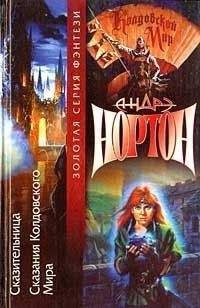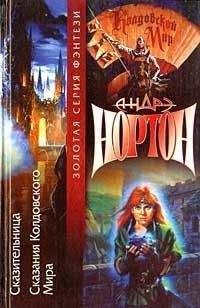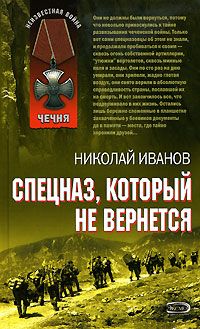Andre Norton - Web of the Witch World
Wish away walls—that comment remained in Simon’s mind. All in all, since he had been here he had seen only four of the true Kolder—the two in the hold and the two who had manned the crawler into ambush. And two of those were dead. Of the others he believed that the one in the cap with whom he had dueled long range from the shore might serve the purpose he was beginning to formulate. If that one still lived. But could he be reached and how effective would such a try be? Simon signaled a return to where they had left Loyse and Jaelithe.
They listened to him as he not really outlined any concrete plan, but thought aloud.
“These capped ones—they control the rest?” asked Sigrod.
“At least they give orders and control much of the installation, of that I am sure. The aliens brought one with them; they used him to get through the gate.”
“But he did not take them into the keep,” Jaelithe pointed out, “or they would not be down there now with the walls held against them.”
“He might have been killed in the assault on the camp,” Loyse suggested.
“And this other one, whom you fought,” Jaelithe continued, “you believe that you can reach him by the power, compel him to do your will?”
“We might,” Simon corrected.
“So open the doors for those demons?” Sigrod nodded. “But let those get within and the nut is still shelled for our cracking. They were Kolder, too, is that not so, Lord? Then what if we have only exchanged one set of Kolder for another?”
“Yes,” Simon admitted the justice of that. “Therefore we hope that Ynglin will be able to bring us reinforcements and we wait.”
Much of this warfare with the Kolder was based on waiting, Simon decided. And waiting was the most tiring of all a fighting man’s duties—war was full of “hurry up and wait.” He rolled over on his back and lay looking up into what was now the thick dark of a cloudy night sky.
“I will take the first watch, Lord.” Sigrod started up slope again. Simon grunted assent, still considering the problem ahead, chafing because—as so much else since he had ridden out of the South Keep weeks ago—this must depend on chance. Could one will good fortune or ill? His thoughts slid in another direction. Were the old witchcraft tales of his own world true so one could aim ill luck to strike an enemy as he might fire a dart?
A hand on his forehead, stroking back the sweat-dampened locks of hair which clung damply to his skin.
“Simon.” She could always make of his name a singing, an intimate reaching of one to the other. “Simon—” No more than that, just his name.
He reached up and caught that brushing hand with his unbandaged fingers, brought it down against his cheek and then to his dry lips. There was no need for any more words between them. Theirs had always been an inarticulate love, but perhaps, Simon believed, the deeper for its very wordlessness. And now the last vestige of that barrier between them had vanished. He knew that she had those depths and silences to which she must withdraw upon occasion, that he meant none the less to her because of those withdrawals. They were a part of her and so to be accepted. No one could ever occupy all of another’s thoughts and emotions. There were parts of him which would be closed to her also. But to take without question what she did have to give, and offer in return, freely and without jealousy, all he had—that was what their union meant.
“Rest.” Her hand went back from his lips to his head, soothingly. Simon knew that she had matched him thought for thought in wordless communication. His eyes closed and he surrendered to sleep.
There was the Kolder keep, sealed as Yle had been sealed, and from this height they could also see the forces from the gate drawn up about it. Nothing had changed during the night.
“They have not used the fire whip again,” Sigrod observed.
“Might not dare to so close to their own walls,” Simon returned.
“Or else it is exhausted.”
“That we cannot count upon.”
“They lost a lot of the possessed back there. Too many perhaps to try a sally. How long do you think they will keep sitting here like this?”
Simon shrugged. Could you judge the Kolder by any standard he knew? They might well be able to go without food and water, to squat stubbornly at the enemy gates for days, weeks—
“Simon?”
Jaelithe’s face was turned up to his as he looked back and down. Her eyes were alight and there was an eagerness in her expression, “A sending, Simon! Our people come!”
He glanced at the sea but the bay was free of ships; there were no sails on the horizon. Then he slid down into the hollow behind the scout point. Jaelithe was facing south, her head up. Loyse looked to the older woman as she would to a beacon of hope.
“Sigrod!”
“Aye, Lord?”
“Head south. Pick up those who come. Have them circle inland and come up behind us, so—” Simon clarified his order with gestures.
“Aye!” The Sulcarman slipped away into the broken country.
Loyse plucked at Jaelithe’s mail sleeve. “Koris?” Her lips shaped that name rather than spoke it aloud.
There was a half smile on Jaelithe’s face as she made answer.
“That I cannot say, little sister. That Koris’ ax will swing for you—as it has swung—that is truth. But that it will do so here, that I can not tell you.”
Once more a waiting. They sipped from the water container taken from the crawler, shared out mouthfuls of the dry dust which was yet food, also from the Kolder camp. And, as the sun climbed, they continued to wait. But the sun was battling clouds, and its glare did not reach into their hole to scorch them. Before midday it was blotted out entirely. Simon manned the sentry post on the crag, seeing no change below. The Kolder fortress remained sealed, the attackers waited with a super or unhuman patience in their own chosen cover.
Shortly after midday Sigrod came down through the rocks, a tail of fighting men at his back. Mostly they were Sulcarmen, used to shore raiding, but with them also a scattering of hawk-headed helms marking Falconers, and one party of dark-featured men who came quickly to Simon, a hard core of his Borderers.
“Lord!” Ingvald lifted sword hilt in salute. He looked about him at the broken terrain. “This be a land to favor our fighting.”
“Let us hope that that is so,” rejoined Simon.
They held a council of war—four Sulcar captains with the pick of their fighting crews, the corps from the Borderer guard, the Falconers, so far from their own mountains but at home in this country like to those peaks. And Simon laid before them the only plan which he thought might open the Kolder keep.
“This can be done?” Captain Stymir asked, but not as if he greatly doubted the doing. Sulcar knew too much of the witches of Estcarp. Only the Falconers held aloof from magic—their avoidance of women and all the powers of women making them fear more than accept such weapons.
“We can only try,” Simon replied. He looked to Jaelithe now and she gave an almost imperceptible nod.
From among the outer ranks of the men came another figure who had just caught up with the main body of the troops. As those about her she was mailed and helmed, but she also wore the gray surcoat of Estcarp and above it rested the dull gem of witchhood.
She pushed to the fore and gazed from Simon to Jaelithe and studied Jaelithe the longer.
“This you believe you can do?” she asked and Simon heard a note of derision in that inquiry.
“This we can do!” Jaelithe made a ringing promise of her answer. “We have done much else in the past days, sister.”
A frown on the witch’s face. Plainly she did not relish Jaelithe’s title of kinship and equality. But she was willing to wait, to wait for them to fail, Simon believed. And her attitude awoke in him the same defiance, though perhaps not to a like degree, that Jaelithe’s tone had made plain. Perhaps it was that defiance which gave added force to his try now.
He built up his mind-picture of the room in the keep—of the two Kolder who had faced him there. Then he narrowed that vision to the one in the cap. His will became a solid, thrusting thing, as tangible and deadly as a dart or sword blade.
That will reached out—sought—and found! His first fear was proven needless, the man of the cap lived. Alive, yes, but that which had been within him was empty—gone. Empty space could be filled for the nonce—with purpose! Simon’s will entered in, and behind that flowed a vast building strength which fed and enlarged and worked at one with him—Jaelithe!
Simon was no longer aware of the rocks and the waiting men, of the witch’s scornful face, even of Jaelithe, save as that other force which was also a part of him. The will ran into the emptiness of the Kolder, making him wholly theirs—as possessed as had been the slaves he and his kind had taken from Gorm, Karsten, Sulcar, all the other nations of this world they strove to bring under their rule.
Somewhere within the keep the Kolder was on the move now, answering the commands given him. A simple one to begin with: Open the closed. Let in disaster. And, being no longer Kolder but possessed, he obeyed. Simon caught hazy glimpses of that obedience—of hallways, rooms—once of a man who strove to stand between and so died. But always the obedience.
Then came a final act, a picture of a board over-hung with lights, on it many controls. And the Kolder’s hands moved, pressed buttons, touched levers. With his actions the defense of the keep faltered . . . died.
Then there was a sharp darkness and nothing—Simon recoiled from that nothingness, a cold terror gripping him. He was out in the open under gathering clouds, his hands clasped in Jaelithe’s and the two of them staring into each other’s wide eyes, the horror of that last encounter with non-being upon them both.
“He is dead.” Not Jaelithe, but the witch saying that. And she was no longer aloof, but something of that terror was in her face. But her hand came up in a small salute for their sharing. “You have done as you said.”
Simon moved stiff lips. “Was it enough?”
“Sul!” That cry from the spy perch. “Those demons, they are on the move!”
They were on the move, indeed. For there was a gap in the foundation of the keep, a break in the wall. And into that break streamed the skeletons from the gate world. They made no outcry, merely surged forward. Half the party were through when a shield dropped, catching two of the invaders between it and the earth in its crushing descent. These behind aimed their withering rifles at the lower edge, still kept from sealing by the bodies. And the gate shivered at that point, fell apart in jagged pieces as the rest of the skeletons beat upon it.
“Down and in!” One of the captains whirled his sword over his head, answered by the full-throated, “Sul! Sul!” of the raiders he commanded. The wave of the Estcarpian force flowed down the slope.
It was not pretty, that taking of the heart of Kolder. And it was more a hunt than a battle. Strange weapons slew men and skeleton alike in those narrow hallways as they fought from room to room. But then those weapons failed as if the heart of Kolder missed a beat.
And, when Simon and his Borderers, together with a detachment of Falconers, fought their way into the room with the control board that heart ceased altogether. For the capped men there, six of them, died together and the great board went dead with them.




